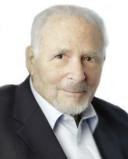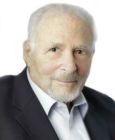Attention
The Las Vegas Shooter’s Motivations
Can understanding lead to prevention?
Posted October 7, 2017
While it’s easy to understand the horror he inflicted, truly comprehending the motivations of Stephen Paddock (the Las Vegas shooter), let alone empathizing with his outlook, is a very long reach. From news reports it seems clear he was intent on having his actions publicly recognized. But to what end? Could it be just as simple as a thirst for attention? Timothy McVeigh, the Oklahoma Federal Building bomber, wrote that you need a high body count if you want to get publicity. Paddock certainly achieved that. Although he frightened many people, he isn’t labeled a terrorist because that term is usually reserved for actors who seek to advance some political cause. Paddock had none that we know about.
Did Paddock think people would admire him? I suspect he was not so mistaken in his estimates of public reactions. It probably was sufficient that people would know who he was. It is beyond my capacity to empathize, to feel how desperate the need for attention must be to seek it by this means, knowing that the attention so earned will not include respect or admiration, at best only interest leavened by condemnation.
There have been suggestions that the media agrees, in the future, to not reveal the names of these killers, hoping that will stop their horrible attempts to obtain personal publicity. One cost of that strategy is that people who knew the killer at various points in his/her life would not come forth to volunteer information that could help us understand the killer, understandings that also might aid attempts to prevent such actions by other potential killers. Even without that cost, there is little reason to hope the media would obey pleas for self-censorship.
If I knew more about Paddock’s life, it might make his actions slightly less frightening, offering the hope that understanding could lead to successful prevention. But even armed with such information, I am not optimistic that we will be able to identify those who may become shooters before they act. Think how disastrous a false positive would be, mistakenly identifying someone who posed no threat!
While this shooting shows us the worst of what some humans are capable of doing, it also shows us the best of human nature. Nevada residents lined the streets mere hours after the attack, waiting to donate blood, without having been asked to do so. Our entire country mourned as our flag was lowed to half-staff in many places. The Eiffel Tower and other major monuments around the world went dark to honor the victims. Yes, human beings can and sometimes do terrible things. It is noteworthy because they are rare. It is the compassionate wish to help those who suffer which is common to our nature.


